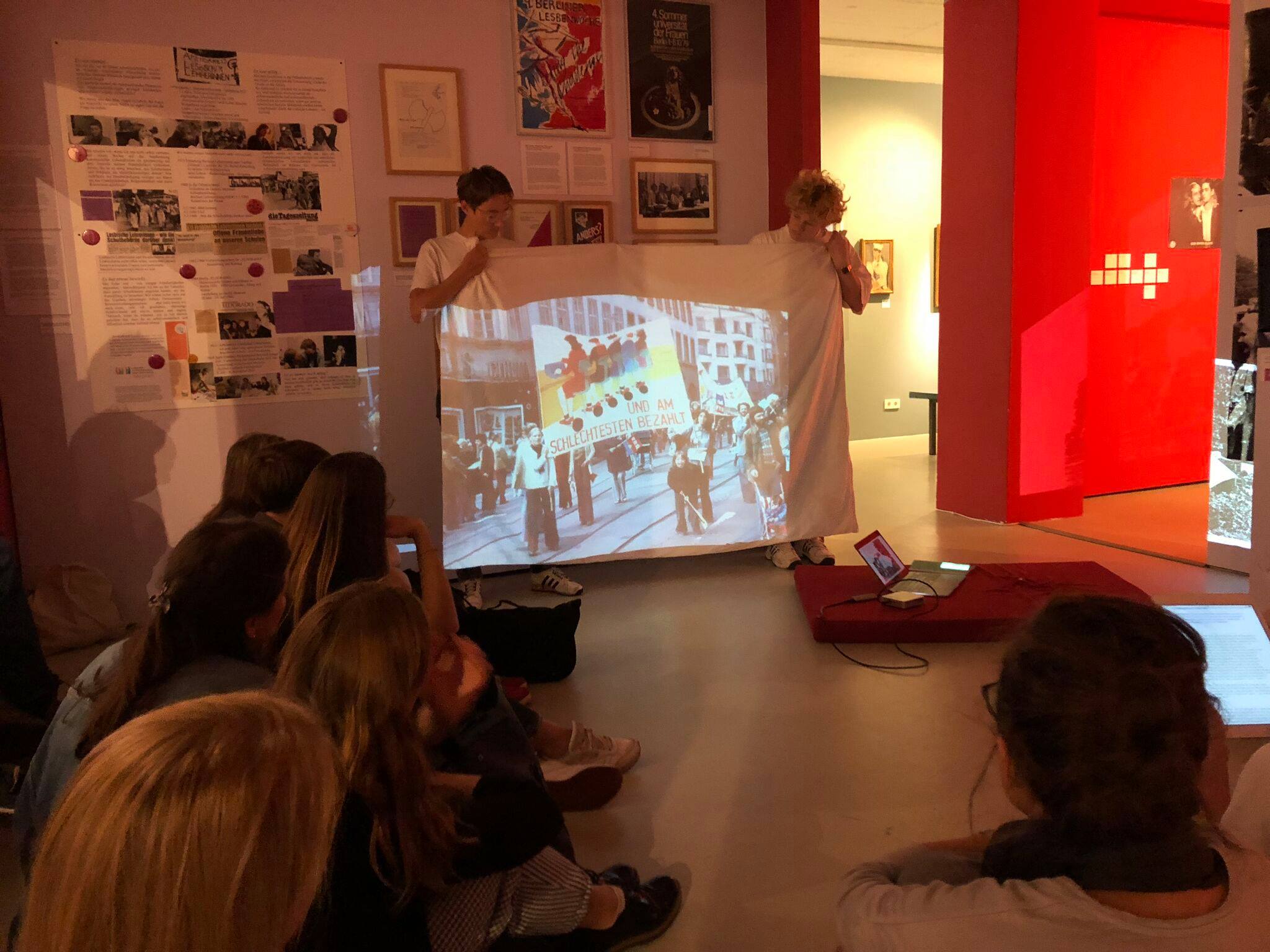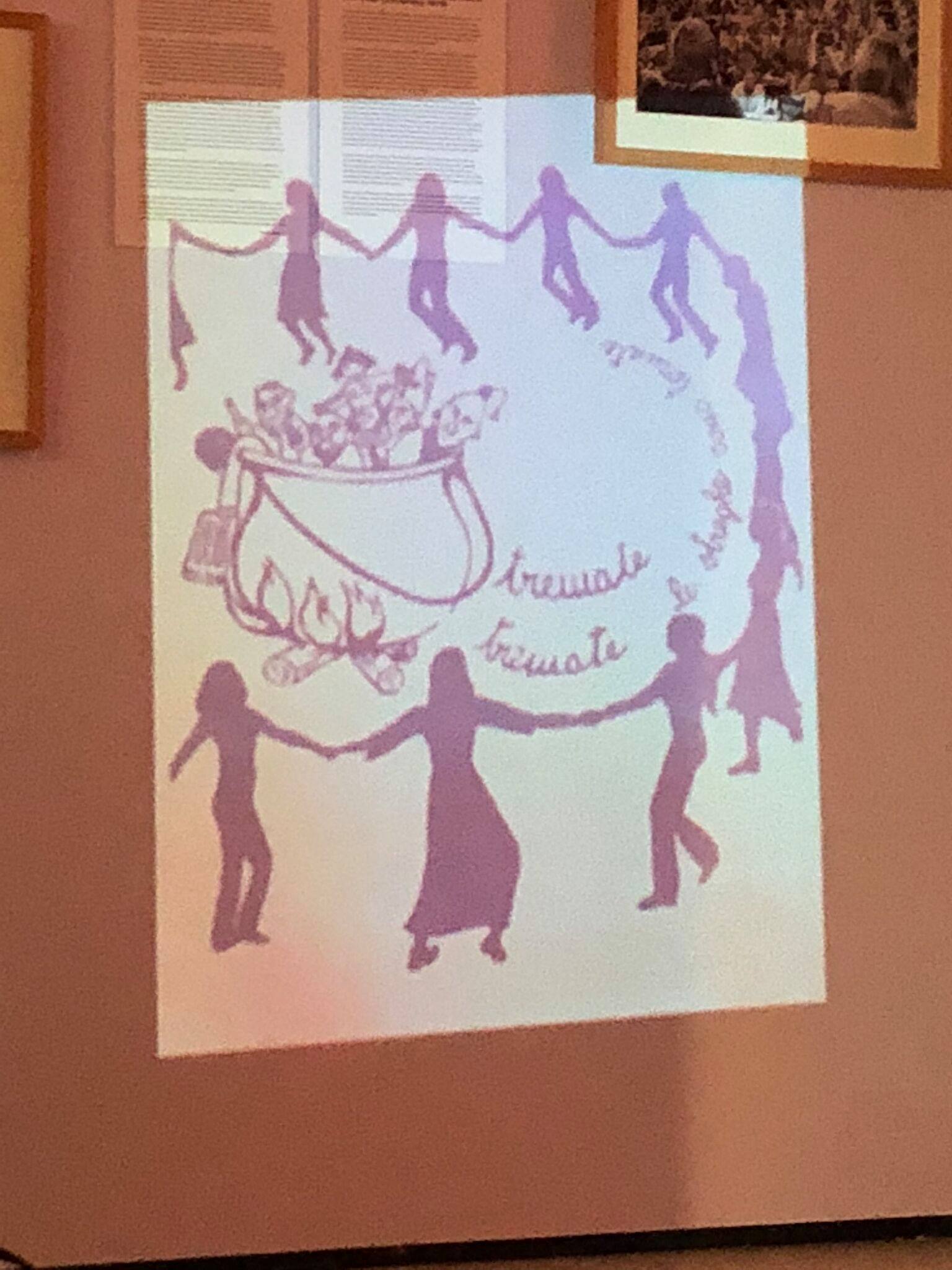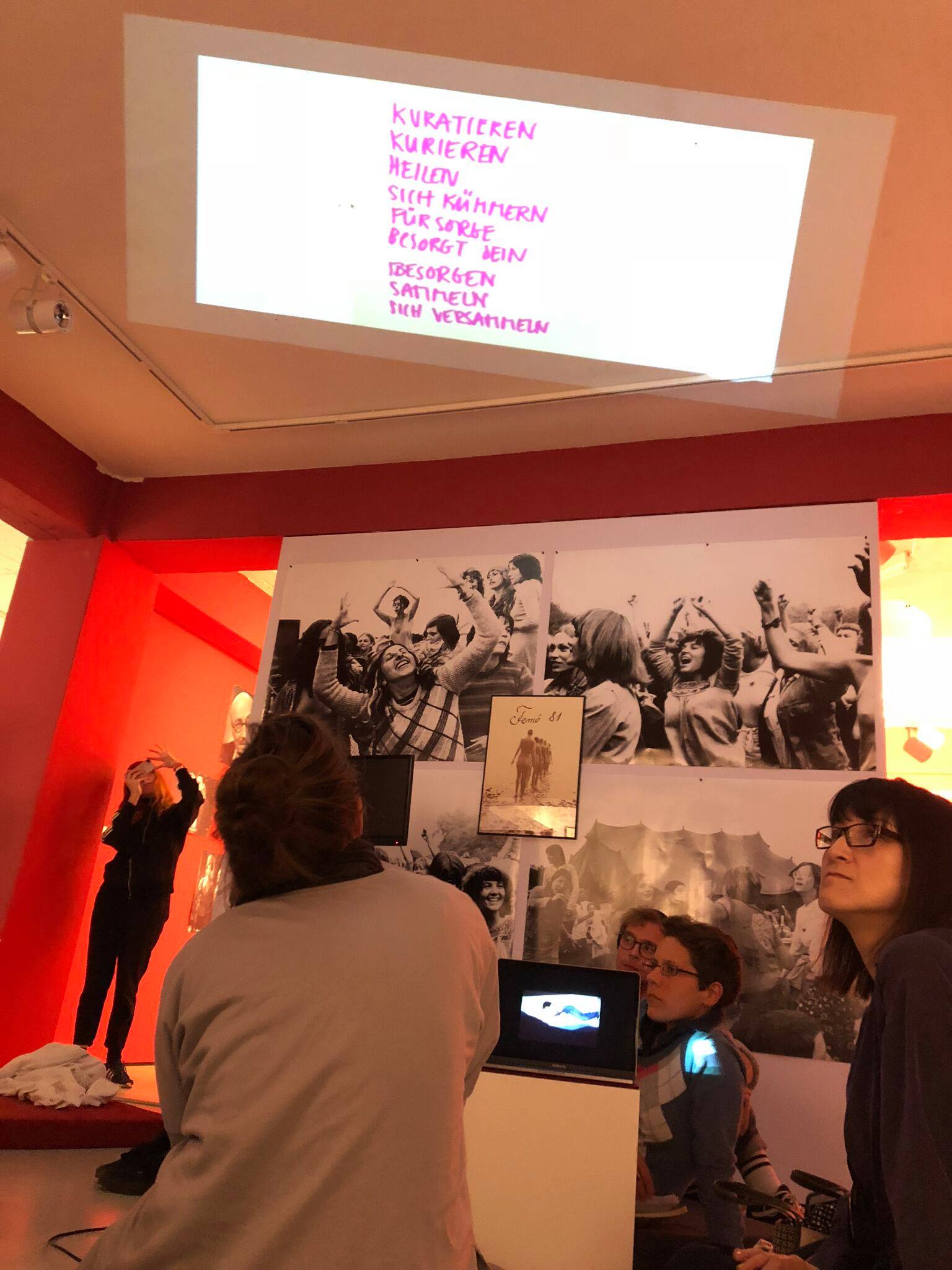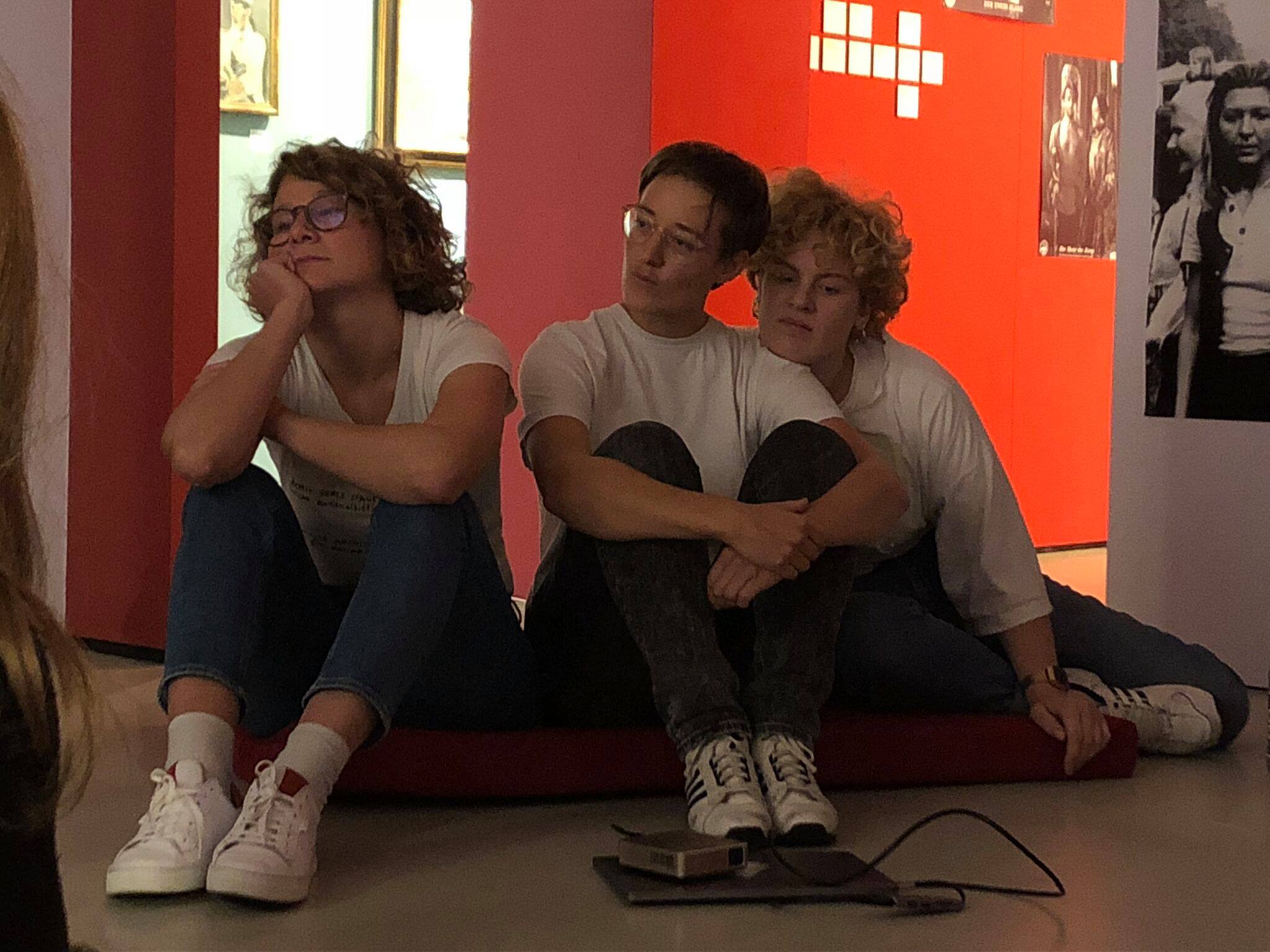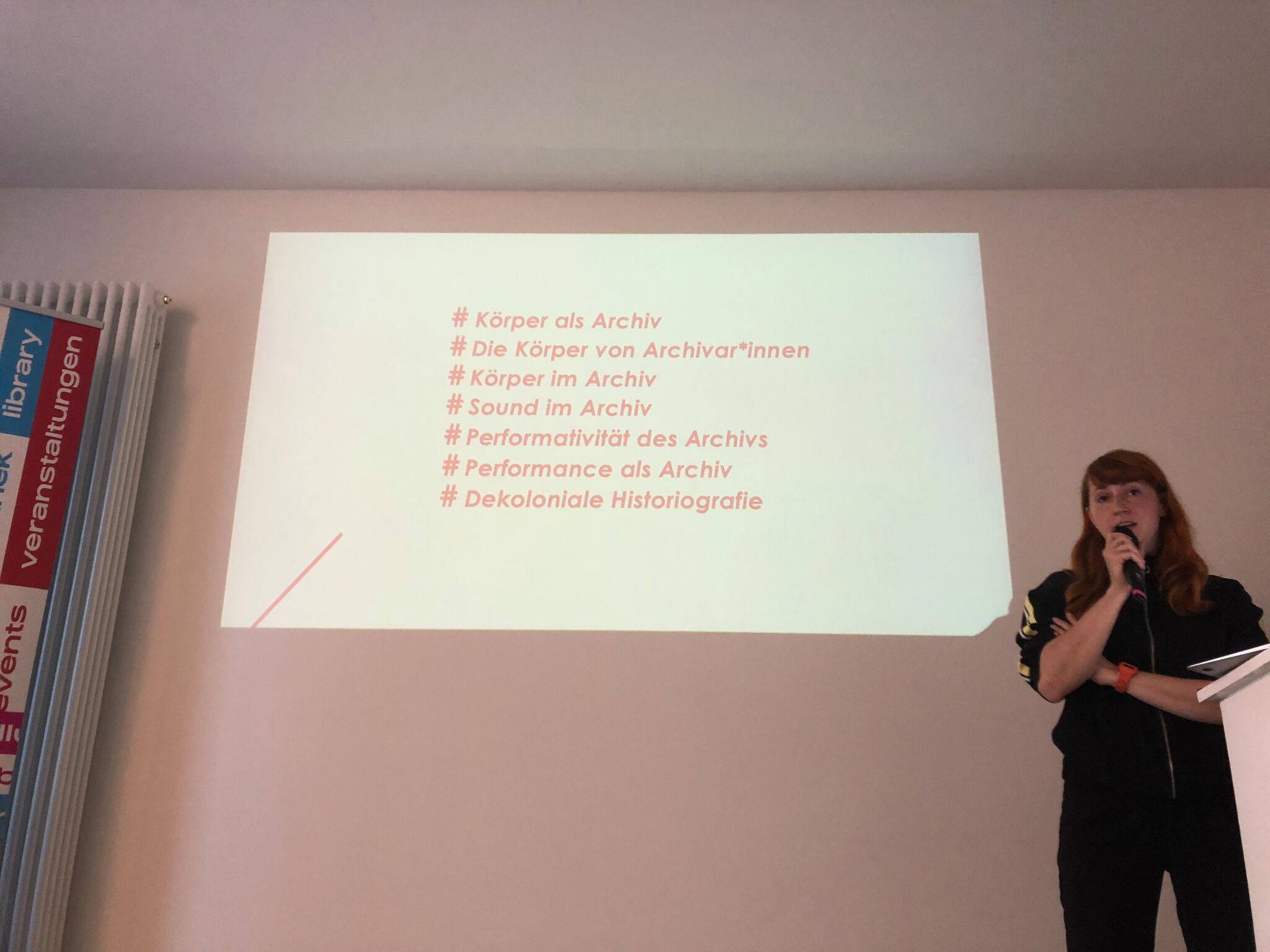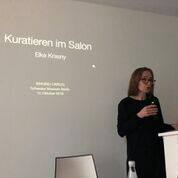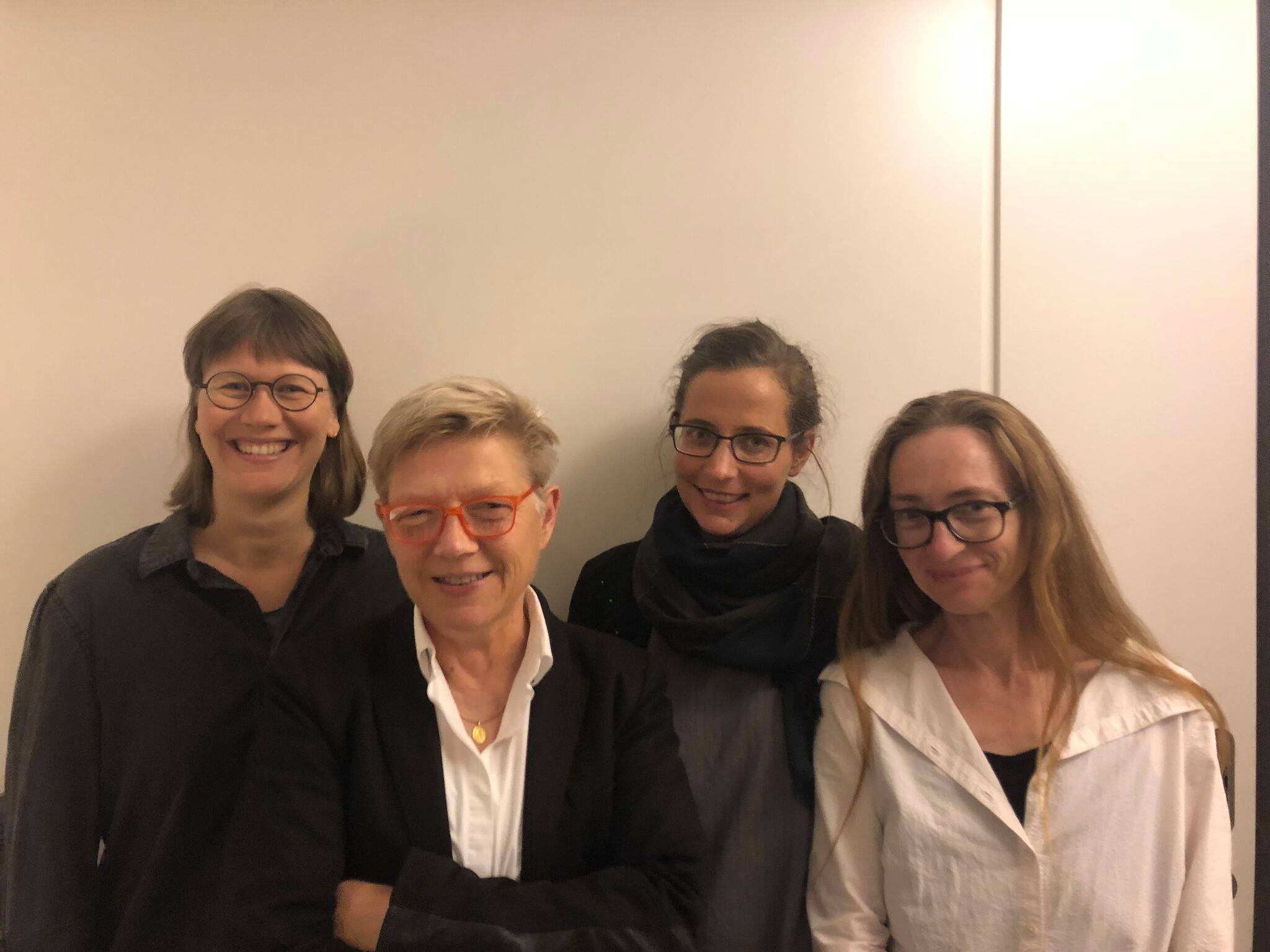Who(se) Care(s). Curating – Re-Productive Care. Critical, Feminist, Queer (098)
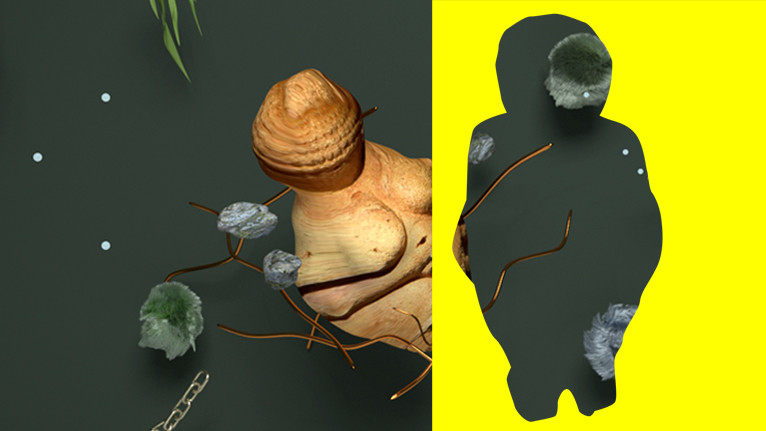
TWO-DAY SYMPOSIUM
Can resistance be gathered? Can one (don't) care? May activism be curated? Which alliances are justifiable? How to escape exhaustion and instrumentalisation? What unlikely encounters and delightfully surprising constellations are possible?
Curating comes from the Latin "curare" - "to care for, to nurture", but also "to provide for". The two-day symposium Who(se) Care(s). Curating - Re-Productive Care. Critical, Feminist, Queer is a collaboration between the Schwules Museum Berlin and the dissertation group Art and Education at the Academy of Fine Arts Vienna and explores questions of agency and critical potentials of alternative, especially feminist, queer, collective curatorial practices.
Themes include the Year of the Women* at the Schwules Museum Berlin, sexual activism in the club scene, digital feminisms, radical salonières, women*'s peace activism and feminist health movements. These questions are discussed against the backdrop of the both celebrated and critiqued power of definition curators have while at the same time the neoliberalised permanent competitiveness of thoughts, feelings, concepts, ideas, projects is increasing. The German Museums Association defines the job of a curator with five areas of work: "conservation, expansion, research, presentation of collections and management". The aspect of care is thus understood more in a bureaucratic sense than administering or managing, and furthermore, with the aspect of "presentation". field of tension is opened up between administration and creativity. While historically it was precisely the administrative, collection-related activities that determined the job profile much more than the creative ones, today curators are primarily perceived as more or less ingenious exhibition makers, powerful "agenda setters", authors of influential narratives who can initiate or intervene in social discourses.
Apart from the fact that this could also be a gross overestimation of the cultural sector: The fact that the aspect of care, of caring, of being cared for is left out is no coincidence. For the ingenious curator is not only the copy of the ingenious artist. Just as contested, the curator is nevertheless the dominant figure in the art world, but also a relative of the "homo oeconomicus" who continues to haunt the standard economic models. These are models that structurally and silently perpetrate violence by systematically concealing reproductive labour and thus the preconditions of economically recorded productivity. The lonely hero Robinson Crusoe - a human being in an absolutely exceptional situation - is thus not only a model for the subject of classical economics, but for the "autonomous individual" par excellence, for whom the denial of dependence and neediness, corporeality and collectivity is constitutive.
The fact that the career of the figure of the curator seems to be over before it has really begun - it is both theoretically deconstructed and practically questioned and replaced by "innovative" curatorial ways of working in favour of cooperative, collective and interdisciplinary procedures - may perhaps also be due to the feminisation of the job description. The female* curator appears as the nurturer of the cultural sector, while her male colleagues meanwhile continue to occupy the directorships.
Who has a voice? Who raises their voice? Who gives a/their voice to whom? How can spaces for unlikely encounters be opened up and sustained in the long term? And, what again do these approaches leave out? What role do bodies and collectivity play in these strategies? What about the division of labour here? Who does the reproductive housework of artistic/curatorial productivity? What exactly would that be? What does the whole debate have to do with feminism and/or queerness? And how is it to be assessed that critical practices are adapted, almost absorbed, relatively harmoniously in the cultural sector, while in the "real" world the old and young masters continue to rule? Starting from these questions, the symposium Who(se) Care(s). Curating - Re-Productive Care. Critical, Feminist, Queer deals with artistic action, curatorial action and political thinking that seeks to sustainably represent marginalised positions and undermine institutional power structures.

